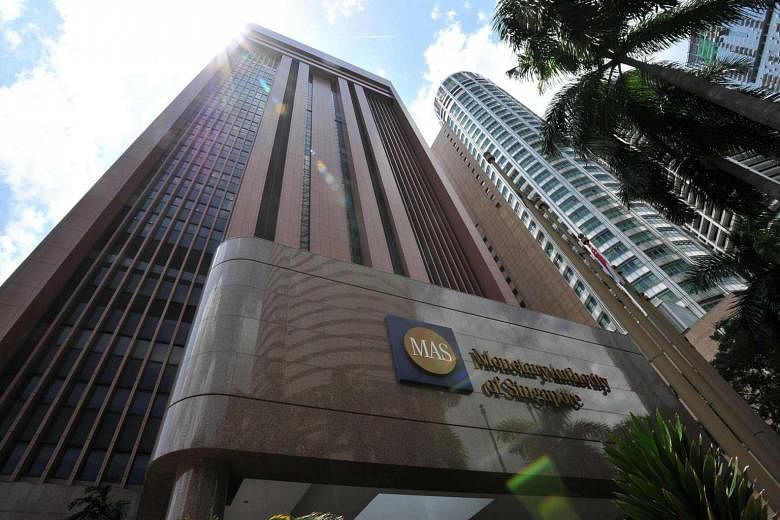The outlook for Singapore's economy is hardly upbeat, but the central bank is unlikely to weaken the Singdollar to help lift growth, economists say.
Most think the outlook is not yet dire enough to warrant a change in exchange rate policy when the Monetary Authority of Singapore (MAS) meets next month.
Singapore's central bank uses the exchange rate as its main monetary policy tool to strike a balance between inflation from overseas and economic growth.
The exchange rate is allowed to float within a policy band that the MAS can adjust when it reviews monetary policy. A stronger currency counters inflation by making imports cheaper in Singdollar terms, while a weaker Singdollar - which corresponds to easing monetary policy - boosts growth by making exports cheaper abroad.
The Singapore economy has had a subdued year so far, and headline inflation has been negative for 21 straight months, due largely to sliding car prices and cheaper crude oil, which has led to lower utility bills.
Unless there is a sharp deterioration in the growth outlook, however, the MAS is unlikely to further ease monetary policy, according to a report from ANZ Research.
In April, the central bank unexpectedly eased policy, by flattening the slope of the band it uses to guide the Singdollar against an undisclosed basket of currencies of main trading partners.
This reduced the rate of the Singdollar's appreciation against this basket of currencies to zero per cent. It was the third time MAS had eased monetary policy since January last year. The last time it put the Singdollar policy band on a path of zero appreciation was in October 2008, when the financial crisis triggered a global recession.
The MAS reiterated in July that there was no need to change its stance barring a marked deterioration in the global economy, or a significant shift in the inflation outlook. Both growth and inflation parameters still fall within the central bank's parameters, said CIMB Private Bank economist Song Seng Wun.
MAS expects the economy to expand between 1 and 2 per cent this year, with core inflation - which strips out accommodation and private road transport costs to better gauge everyday expenses - averaging around 1 per cent.
With the policy stance already at neutral, the next easing move would involve shifting the policy band downwards.
The outlook would need to worsen significantly for this to be justified, said Mr Song.
While there have been some concerns about the economic impact of the Zika virus outbreak, Mr Song said this will be limited.
"There has been some impact on businesses, and some tourists are staying away. But generally people are still getting on with their lives. From that perspective, it's far too early for MAS to adjust policy because economy might be taking a hit," he added.
But some economists disagree.
A recent Credit Suisse report said Singapore's deteriorating export competitiveness, combined with slowing growth and negative inflation, is likely to prompt the MAS to depreciate the Singdollar relative to its trade-weighted basket of currencies at the October policy meeting.


